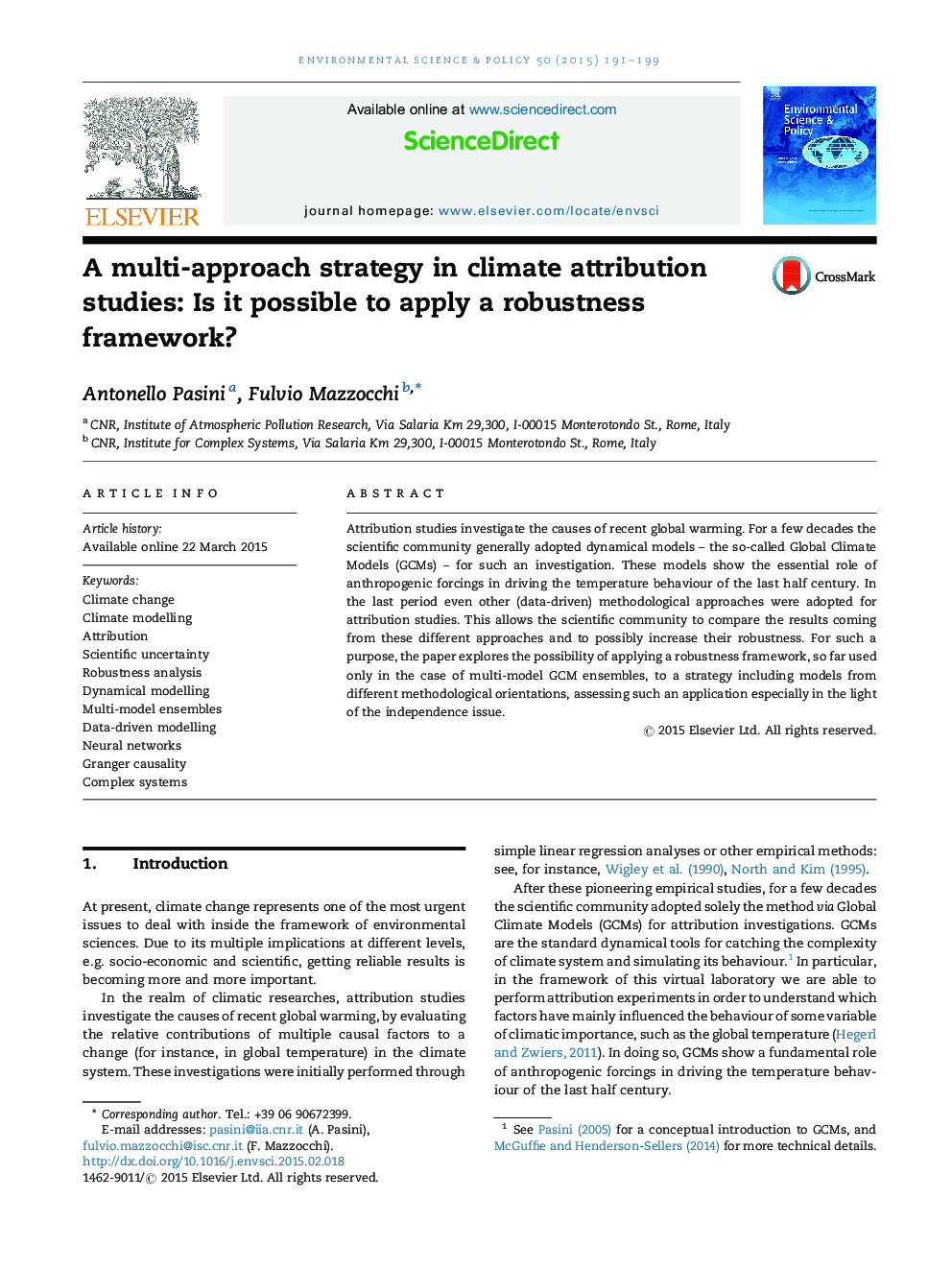| Article ID | Journal | Published Year | Pages | File Type |
|---|---|---|---|---|
| 1053492 | Environmental Science & Policy | 2015 | 9 Pages |
•Agreement among different models is seen as increasing the reliability of their results.•Genuine robustness relies on the condition of genuine (at least partial) independence.•The relevance of a multi-approach strategy in climate science is emphasized.•Different and independent approaches produce comparable results in attribution studies.•A robustness framework is applicable to the multi-approach strategy.
Attribution studies investigate the causes of recent global warming. For a few decades the scientific community generally adopted dynamical models – the so-called Global Climate Models (GCMs) – for such an investigation. These models show the essential role of anthropogenic forcings in driving the temperature behaviour of the last half century. In the last period even other (data-driven) methodological approaches were adopted for attribution studies. This allows the scientific community to compare the results coming from these different approaches and to possibly increase their robustness. For such a purpose, the paper explores the possibility of applying a robustness framework, so far used only in the case of multi-model GCM ensembles, to a strategy including models from different methodological orientations, assessing such an application especially in the light of the independence issue.
